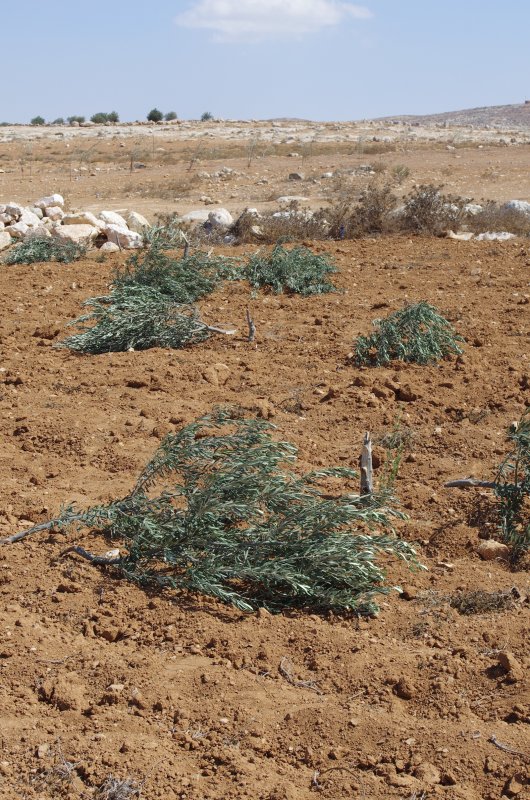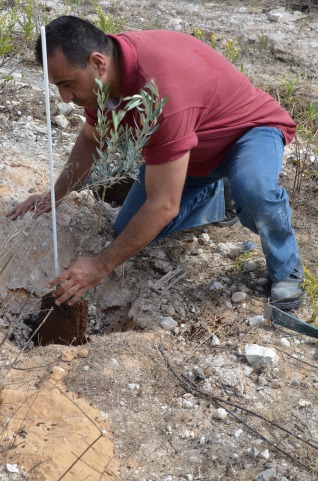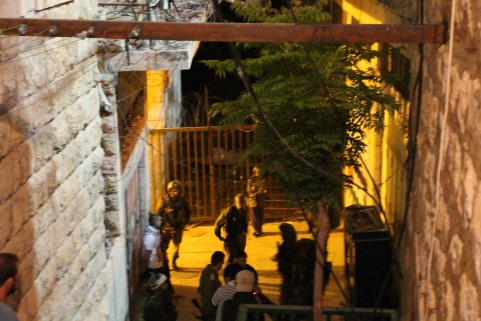Year: 2013
-
48 young olive trees destroyed in South Hebron Hills
4th October 2013 | International Solidarity Movement, Operation Dove | Qawawis, Occupied Palestine Yesterday morning, 3rd October, Palestinians discovered 48 olive trees destroyed alongside bypass road 317 near the South Hebron Hills area village of Qawawis. The olive tree grove belongs to Ali Shetat from Qawawis and had been planted six years ago. At 10…
-
Palestinians celebrate the reclaiming of their land
4th October 2013 | International Solidarity Movement, Nablus Team | Burqa, Occupied Palestine On Thursday the 3rd of October, a large group numbering around a 100 people, consisting mainly of Palestinians from the village of Burqa and the surrounding areas, as well as a smaller contingent of international activists and the press, celebrated the Palestinians’ reclamation of…
-
Palestinian man and his 3-year-old niece assaulted by Israeli soldiers
3rd October 2013 | International Solidarity Movement, Khalil Team | Hebron, Occupied Palestine On Tuesday 2nd October local Khalil shop owner Abed Sider and his 3-year-old niece were hospitalised after being assaulted by several soldiers. On the day of his birthday at 6:30pm, Abed had his home invaded by five Israeli soldiers who had come to…



